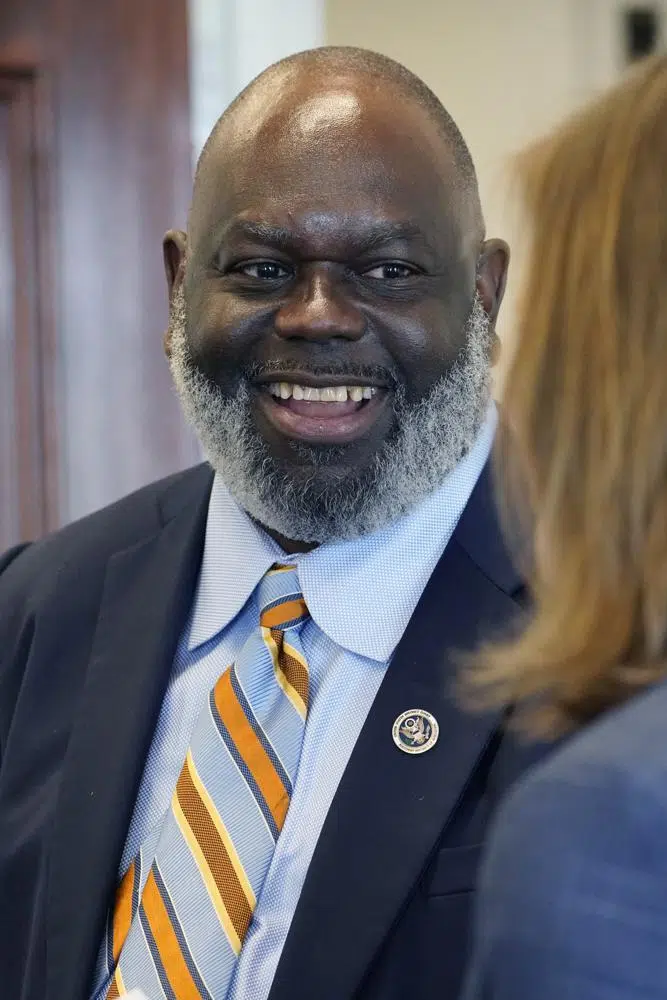
FILE - U.S. District Judge Carlton Reeves, is shown in this photograph taken June 11, 2021, in Greenville, Miss., The state of Mississippi has 120 days to come up with a long-term plan on how it will work to prevent unnecessary institutionalizations of people with mental illness within state hospitals, the federal judge ruled. U.S. District Judge Reeves ordered Tuesday, Sept. 7, that the state's initial plan be submitted to the U.S. Justice Department and an independent monitor, Michael Hogan, for feedback. (AP Photo/Rogelio V. Solis)
JACKSON, Miss. (AP) — Mississippi on Wednesday followed through on its promise to appeal a federal judge’s ruling that it come up with a plan to prevent unnecessary institutionalization of people with mental illness.
Lawyers for the state filed a notice of appeal to the 5th U.S. Circuit Court of Appeals.
On Sept. 7, U.S. District Judge Carlton Reeves ordered that the state’s initial plan be submitted to the U.S. Justice Department and a mental health expert for feedback within 120 days. The judge said then that the final plan must be completed in 180 days.
State lawyers asked last week that the deadline be postponed because Mississippi intended to appeal Reeves’ ruling.
James Shelson, the state’s lawyer, wrote on Sept. 27 that if the Department of Mental Health were required to complete its plan and other requirements of Reeves’ order in the allocated time frame, “Mississippi will suffer irreparable injuries from undue interference with its mental health system and a fundamental alteration of that system both in costs and structure.”
Under Reeves’ order, the state is responsible for tracking a wide array of data, including state hospital admissions and the number of patients who remain in state hospitals more than 180 days; calls to mobile crisis teams, and the number of people being placed in jail while waiting for a state hospital bed.
Another stipulation of Reeves’ order requires Mississippi to fund 250 new vouchers to help people with mental illness pay rent and utilities in the 2022 budget year, and 250 more during the 2023 budget year.
Reeves also ruled that Mississippi must start a clinical review process. The state must sample 100 to 200 patients a year “to assure that services are working as intended to address the needs of people with serious mental illness.”
The requirements are the result of a yearslong legal battle over how Mississippi cares for people with mental illness.
The federal government issued a letter in 2011 saying the state had done too little to provide mental health services outside mental hospitals. The Justice Department sued Mississippi in 2016, and Reeves ruled the state was in violation of the Americans with Disabilities Act.
State attorneys contend Mississippi has enacted programs that enable people to obtain treatment in their communities and avoid hospitalizations, such as mobile crisis teams, supportive housing and peer support services. Justice Department attorneys said during a hearing this summer that those services need to be expanded and there need to be metrics to ensure they are working.







Comments